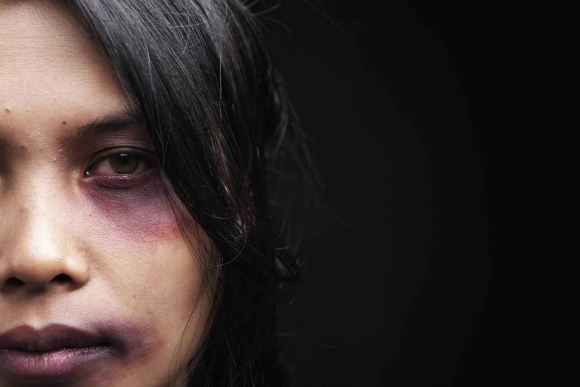"Marital or not, Rape is rape: The Marital Rape debate in India"
DEVIKA SHARMA

NEW DELHI: The lives of most women in India are no less dramatic than the ‘sanskari’ films of Sooraj Barjatya. His films have often formed the first ideas of heterosexual relationships in the minds of Indian young girls and boys. Some of those ideas are: a sanskari woman’s ultimate goal in life is marriage, Babuji (Patriarch) is boss and his sexism is always justified and lastly, not just babuji, the husband is the boss too.
Remember the song “Mujhe Haq Hain (I have the right)” from his film Vivaah? In the song, the would-be husband of the female protagonist pretty much tells her that he has an unquestionable ‘right’ over her body. That’s precisely what sums up the idea of Barjatya’s oeuvre –the husband’s wish comes before the wife’s agency.
These films panders to obsolete, nauseatingly patriarchal, upper-class Hindu values just like the government’s take on marital rape. Why blame his films when it’s a living reality of our societies?
Responding to petitions seeking criminalizing of marital rape, , the Centre submitted an affidavit before the Delhi High Court stating that criminalizing marital rape, may ‘destabilize’ the institution of marriage and would be an easy tool for harassing the husband. They said that marital rape should not be criminalised, because what an “individual wife” considers rape may not appear the same to others. “There is nothing like marital rape” said another Supreme Court lawyer, Swaraj Kaushal on Twitter.
The preposterous Section 375 of the Indian Penal Code, that defines rape, includes an exception clause: “Sexual intercourse or sexual acts by a man with his own wife, the wife not being under fifteen years of age, is not rape.” This means that a married woman above the age of 15 if raped, by her husband cannot seek legal redressal unlike a woman who is raped outside of marriage.
The Justice JS Verma committee in 2013 recommended the removal of this clause. It quoted the UN Committee on the Elimination of Discrimination against Women (CEDAW), the Declaration on Elimination of Violence against Women 1993 (DEVW) both of which includes marital rape in the list of abuse and violence against women.
However, the current submissions by the center have made peculiar arguments against criminalizing marital rape. Their response has completely denied the possibility of rape in a marriage. Not just that, they have downgraded women to being mere property of men where they have no consent in a relationship.
Such a recommendation will violate an Indian woman’s right over her own body. All rights concerning women, be it right to property, and rights relating to marriage, abortions and adoption render women voiceless.
The government gathered mass appreciation by taking the moral high ground on triple talaq recently. However, it then did what it has been infamous for doing— advocating the hegemonic idea of ‘Indian culture’— even if that means defending patriarchy. Hence, maybe is not unexpected that the government asserts a narrow-minded and condescending take on the issue. The state should not argue to protect the institution of marriage in a situation where the sexual independence of a woman is being completely hammered.
In no way can they deny the prevalence of marital rape given how millions of women in the country are forced to sexually submit to violence by their husbands, and why? Only because they are married to them. Are those against criminalization of marital rape trying to imply that the institution is a licence to violate one’s sexual consent? The bottom line is that unless and until, the government is not ready to admit that a rape is a rape, even if it is committed by a husband, then clearly we are denying justice to millions.
Another misleading stand of the government is the preconceived belief of harassment of husbands by their wives. The alleged damage from not making marital rape a crime is completely overshadowed and shows the callousness of the opponents of criminalization. It shows that they are not in touch with the ground realities. It shows their shallow understanding of marriage which involves irretrievable consent to sex.
Women are being told to smile and swallow the humiliation. For their silence, they will be sanctified as good mothers, good daughters and embodiments of purity.
Not criminalizing marital rape is a case of putting a man’s right to not be harassed over a woman’s right to not get raped, in her own bed.
The writing's on the wall: It's rape, if it violates a woman’s consent causing her physical and mental trauma and any reasons for defending it are imprudent.


